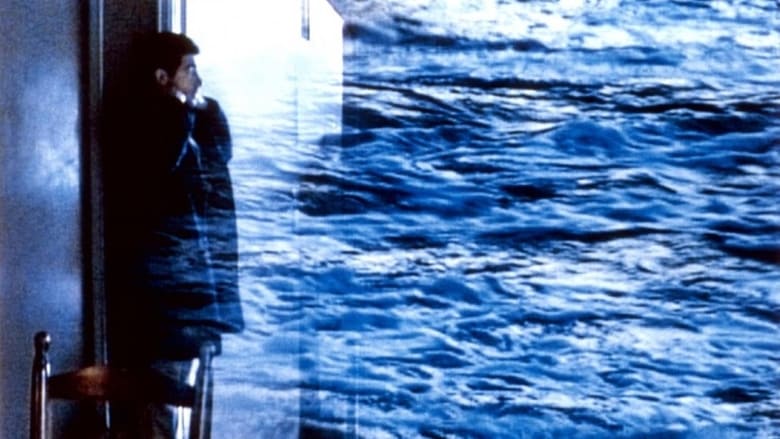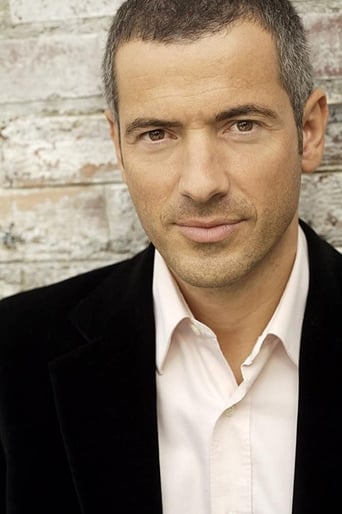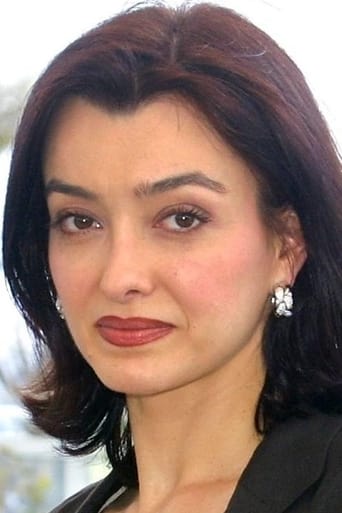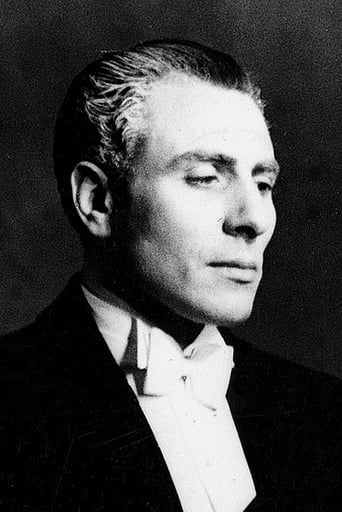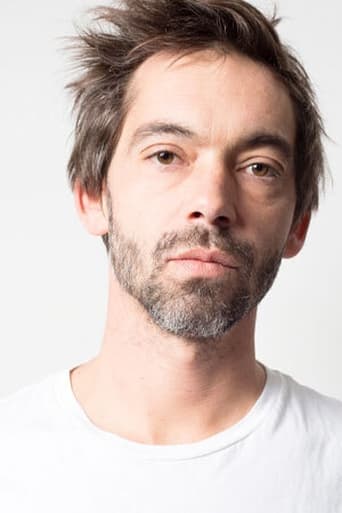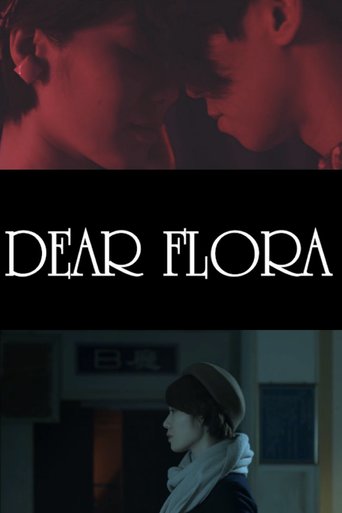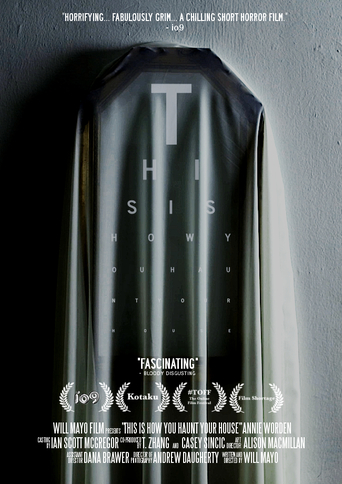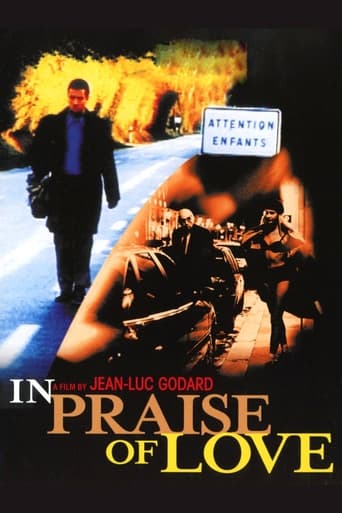
Someone we hear talking - but whom we do not see - speaks of a project which describes the four key moments of love: meeting, physical passion, arguments/separation and making up. This project is to be told through three couples: young, adult and old. We do not know if the project is for a play, a film, a novel or an opera. The author of the project is always accompanied by a kind of servant. Meanwhile, two years earlier, an American civil servant meets with an elderly French couple who had fought in the Resistance during World War II, brokering a deal with a Hollywood director to buy the rights to tell their story. The members of the old couple's family discuss heatedly questions of nation, memory and history.
Similar titles

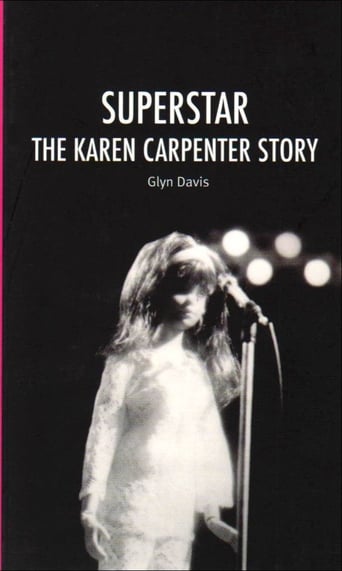
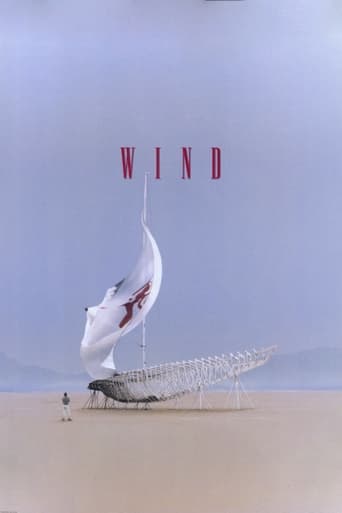
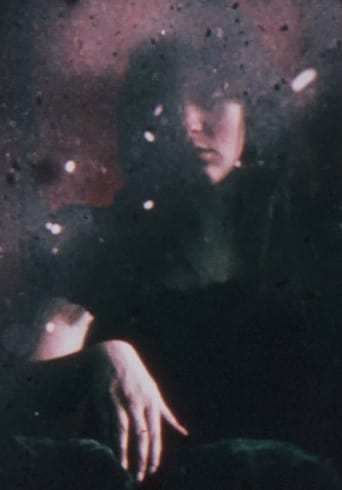
You May Also Like
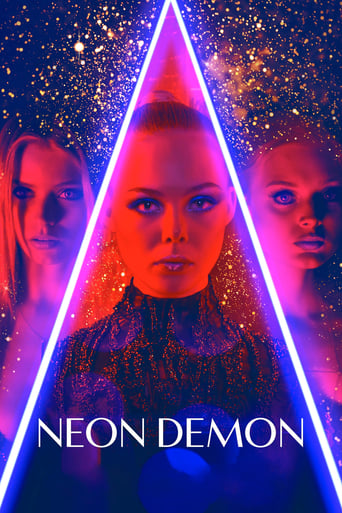
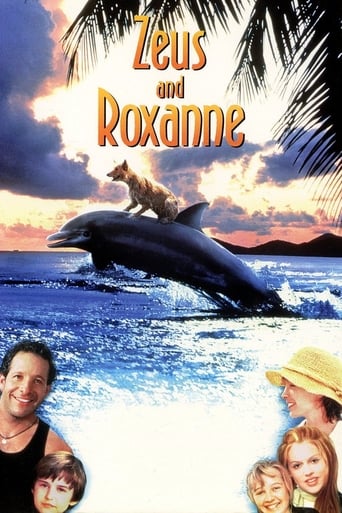

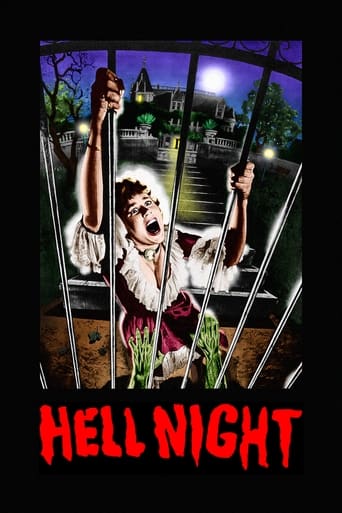
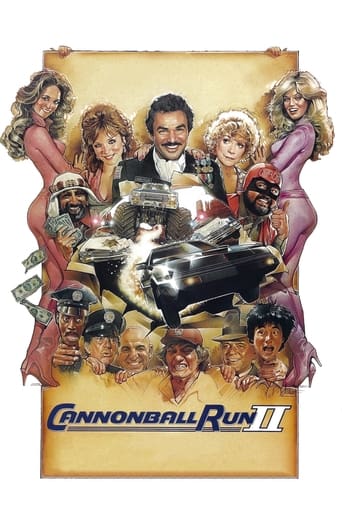
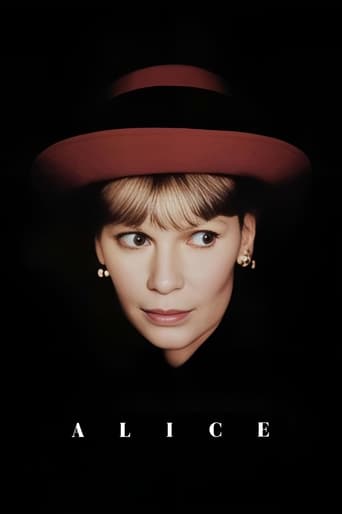
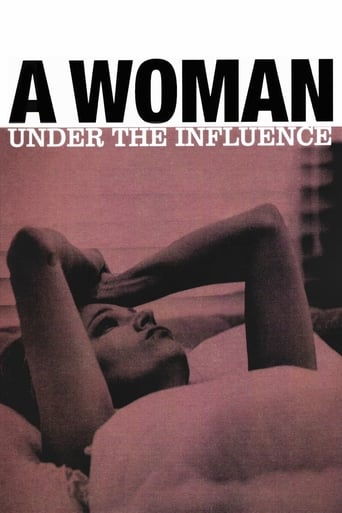
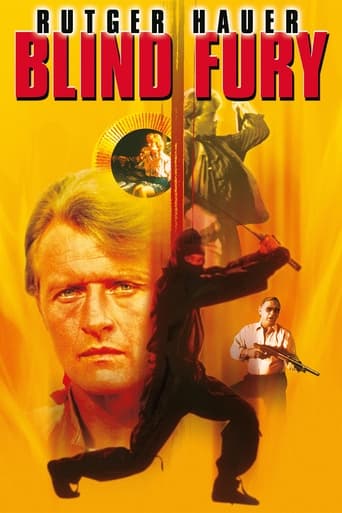
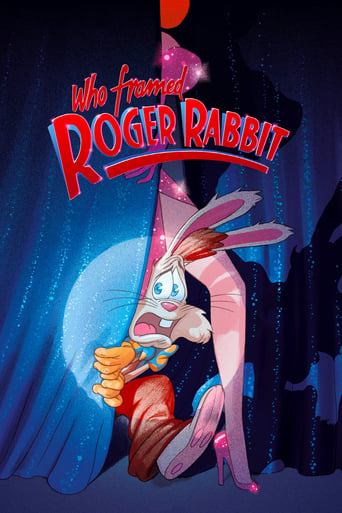
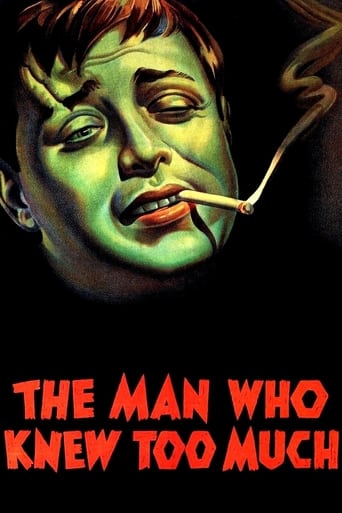
Reviews
Touches You
That was an excellent one.
Must See Movie...
Don't Believe the Hype
"I don't know him (Spielberg) personally. I don't think his films are very good." – Jean-Luc GodardJean Luc Godard's "In Praise of Love" is divided into two parts. First part: a filmmaker's project about a love affair. This section is filmed in luxuriant blacks and whites. It is cinema as past. It occurs first. Second part: a filmmaker tries but fails to connect to a young woman. This section is filmed in saturated colours. It is cinema as future. It occurs second. Godard's order is accurate; past follows present because "the past" here is the filmmaker's memory in the present.Unsurprisingly, "Love" is not only about a physical romance between people (and countries/cultures), but the romance between Edgar, a filmmaker, and cinema. A stand in for the younger, more optimistic Godard of the 60s, Edgar charters Godard's own journey toward disillusionment.The film's second section revolves around a grandmother - a Resistance fighter during WW2 - whose "past history" is sought by Hollywood producers who work for Steven Spielberg. The resistance loses and Hollywood co-opts her tale. "Because they have no memories of their own," Godard muses, "Americans buy the memories of others." Here, history has been subsumed to fiscal and technological muscle. "He who controls technology, controls history," someone then says, both the past and cultures flattened, homogenised and foisted upon a world too weak to resist. But the past, Godard reminds us, has always been a kind of one dimensional artifact; always a collection of thin signs, signifiers and pop icons. Think 60's America, think hippies, weed, Dylan and bell-bottom pants; the memory triggers of an era.Many have complained that the film is "anti-Spielberg", but Godard is rallying against a more generalised form of "cultural imperialism"; the inability of smaller countries (the old grandmother) to resist the logic of a very neo-liberal, late capitalism. He then goes on to state that techno-capitalism, the engine of Hollywood, "colonizes the way Nazism once did". This reads like a bit of shallow sensationalism, though there are some similarities between the two: Nazisms rampant mysticism, its vehement anti-capitalist stance whilst simultaneously being rabidly capitalist, the way capitalism "benignly" bulldozes cultures by innocuously presenting new (and false) choices which we ourselves willingly choose etc.It is clear that Godard has contempt for "Schindler's List" (those who argue that "Spielberg made no money off "List" miss the point), which he largely believes is a trite bag of lies (which modern historians have since verified - see Gruntova, Crowe, Meyer). But his real target is the way cinema repackages, distorts and commodifies history, reducing the past to a set of myths designed to placate. Godard doesn't quite exempt himself from this process. In "Carmen" Godard made fun of being out of sync with the world, casting himself as a washed up wreck of a movie director called "Uncle Jean". In this film, he expresses his inability to love cinema. Cinema has left him hanging like an ex lover. He no longer believes in it as a transformative artform."Love", like a number of Godard's later films, is shot like a series of fleeting fragments. Memory is omnipresent, it invents our current reality, and as such the film is structured around a series of memory triggers. Making heavy use of montages, thematic juxtapositions, symbols, symbolic vignettes and jump cuts, Godard's language here is too esoteric for audiences to digest in one or even two viewings. Like Godard's greatest films ("Weekend", "Film Socialisme", "Our Music", and to a lesser extent "Made in USA", "Histoire(s) du Cinema", "First Name: Carmen", "JLG/JLG", "Nouvelle Vague", "Hail Mary", "Every Man For Himself", "Contempt", "King Lear" and "Pete the Madman"), it's one which gets better, more touching, with re-watches.More typically Godarddian musings follow: "moving forward is a rejection of your former self." Edgar is the only character in the film who's trying to become an "adult" - seen here as an effort to transcend the world's "Spielbergs" - an attempt which is comically mirrored to Godard's admission that in his old age, he is left only to gaze at the past, unable to move forward and trapped with the regrets of his youth. The idea that youth and old age are recognisable (from a physical and philosophical perspective) and easy to achieve with little effort whilst adulthood, or a "fully-realized, ethical maturity", is more elusive since few people are "allowed" to reach their potential, is repeated throughout the film.And so despite Edgar's best efforts, he is unable to achieve what he set out to do. He makes the jump from childhood to old age without ever becoming an "adult". The world simply doesn't care about Edgar and his "love project", preferring to be trapped in a kind of infantalized, Spielbergian limbo. "The State cannot embrace the world in its totality," Godard then opines. "The state is self-serving and negates love." Love, in Godard's case, is indistinguishable from cinema. Neither is allowed and capitalism's logic is a threat to both.And while most filmmakers see the past as something dead and gone, it's very much alive for Godard, for whom understanding history is the only way to break the vicious cycle of human tragedy. Like "Our Music" and "Film Socialisme", the idea here is that all art forms have failed to evade capitalism, and film, in its ahistoricism, in its unwillingness to understand the past, has followed suit. While these political ruminations are typical of late-Godard, the film's tone is wholly new. This is ultimately a love story, or rather, a film about every form of love: the love between people, creeds and countries, the love of philosophy, the love of what Godard calls "truth and clarity", the love of an ex lover, the of love cinema and the potential the fantasist hopes it still holds. In each sub-section of the film, such "love" morphs into loss and/or melancholy.8.5/10 - Multiple viewings required.
Jean-Luc Godard's episodic opus about a man who interviews various individuals about an unknown project called "Eloge de l'amour," which will involve three couples experiencing four stages of love. The first half of the film, shot in Paris, appears in 35-mm BW and displays some of Godard's most impressive footage. The second half, set in Brittany two years earlier, is shot in super-saturated, bright digital color, deliberately crafted to overwhelm the viewer. The film is oblique, contemplative, challenging, esoteric, and profoundly beautiful. Includes a haunting piano score from Ketil Bjornstad and Arvo Part. Not too be missed.
This film was incredibly slow and boring! It attempted to ask profound and deep questions to stimulate the audience, however, it failed! I spent the majority of my time checking my laptop to see how much time had elapsed whilst praying the film would hurry up and end. There is no identifiable major plot. However, if I was forced to define the plot I would say it was about a man who was looking to fill a role in his "project" (film). He thought he knew the perfect woman but she wasn't all he thought she'd be. Most probably because he didn't know her at all, he'd met her 2 years ago and they'd spoken for approximately 10 minutes.Although I completely hated this film, it did start well. It is so beautifully shot you can't help but stare at the screen. Every shot is like a beautiful photograph. The first half is in black and white and has a lot of frames are close-ups of faces and shots that resemble photographs. Goddard also experiments with light and dark and entraps some amazing moments such as the movement of water (I think a river) as a light shines on it. However, this does get a bit boring, as some shots seem a bit pointless and unrelated to the dialogue or "plot".The colour shots were HIDEOUS and looked as thought the film had been dyed to heighten the colour. This was unnecessary and UGLY!I think Goddard's talents are wasted on movies he missed his calling and should have been a photographer.Don't watch this film. If your going to ignore my advice only watch the first half and switch it off when it changes to colour.
I couldn't make it through the whole thing. It just wasn't worth my time. Maybe one-fourth of the dialogue would have been worth listening to (or reading -- since I don't understand French) if the pseudo-profundity and pseudo-wittiness of the other three-fourths of the film were deleted. Then it could be made into a short maybe 13 or 15 min long and then it might be all right.I don't know why this movie even pretends to utilize actors. Actors are used as narrators of the script and little more. I could swear a whole 20-30 minutes of the film went by showing actors from behind while they talked and from across the street while they walked or sitting in low lighting close up but so that you could not see the expressions on their faces nor their eyes. There was little or no interaction between the actors on the screen except the most superficial for the most part.Some of the lines were as profound (or lame, depending on your viewpoint) as those in Forest "Life is like a box of chocolates" Gump. Other pseudo-profundities were simply sad or dumb or poetic (depending again on your viewpoint), but singularly uninspiring.Visually this film is INCREDIBLY boring, especially with the lack of actors. In fact some minutes of this film showed simply a black screen with the white subtitles and French audio. Altogether sophomoric. Don't waste your time.If you like GOOD movies that are stimulating and profound just from listening to conversation while enjoying good actors, check out RICHARD LINKLATER's "Before Sunset" -- or make a double feature of it and watch "Before Sunrise" first. At least these films are interesting and enjoyable, which is much more than I can say about IN PRAISE OF LOVE (Éloge de l'amour). I give this film 2 out of 10 stars. Not quite offensive enough to rate 1 for "awful" (such as "The Devils" with Oliver Reed and Vanessa Redgrave). If you still want to watch it, go ahead. But don't say I didn't warn you!!!
Top Streaming Movies











